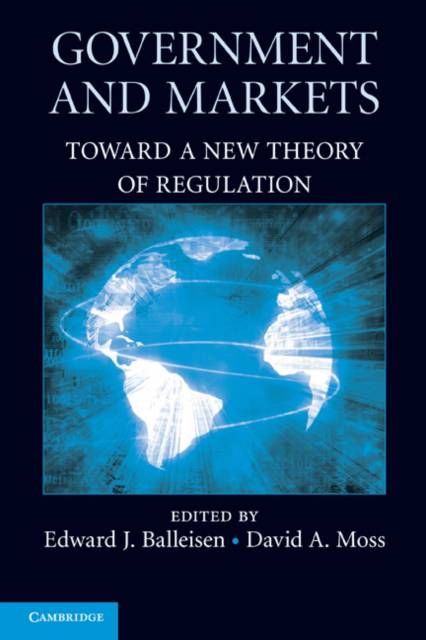
Door een staking bij bpost kan je online bestelling op dit moment iets langer onderweg zijn dan voorzien. Dringend iets nodig? Onze winkels ontvangen jou met open armen!
- Afhalen na 1 uur in een winkel met voorraad
- Gratis thuislevering in België vanaf € 30
- Ruim aanbod met 7 miljoen producten
Door een staking bij bpost kan je online bestelling op dit moment iets langer onderweg zijn dan voorzien. Dringend iets nodig? Onze winkels ontvangen jou met open armen!
- Afhalen na 1 uur in een winkel met voorraad
- Gratis thuislevering in België vanaf € 30
- Ruim aanbod met 7 miljoen producten
Zoeken
€ 74,95
+ 149 punten
Uitvoering
Omschrijving
After two generations of emphasis on governmental inefficiency and the need for deregulation, we now see growing interest in the possibility of constructive governance, alongside public calls for new, smarter regulation. Yet there is a real danger that regulatory reforms will be rooted in outdated ideas. As the financial crisis has shown, neither traditional market failure models nor public choice theory, by themselves, sufficiently inform or explain our current regulatory challenges. Regulatory studies, long neglected in an atmosphere focused on deregulatory work, is in critical need of new models and theories that can guide effective policy-making. This interdisciplinary volume points the way toward the modernization of regulatory theory. Its essays by leading scholars move past predominant approaches, integrating the latest research about the interplay between human behavior, societal needs, and regulatory institutions. The book concludes by setting out a potential research agenda for the social sciences.
Specificaties
Betrokkenen
- Auteur(s):
- Uitgeverij:
Inhoud
- Aantal bladzijden:
- 576
- Taal:
- Engels
Eigenschappen
- Productcode (EAN):
- 9780521280532
- Verschijningsdatum:
- 9/01/2012
- Uitvoering:
- Paperback
- Formaat:
- Trade paperback (VS)
- Afmetingen:
- 152 mm x 229 mm
- Gewicht:
- 861 g

Alleen bij Standaard Boekhandel
+ 149 punten op je klantenkaart van Standaard Boekhandel
Beoordelingen
We publiceren alleen reviews die voldoen aan de voorwaarden voor reviews. Bekijk onze voorwaarden voor reviews.











